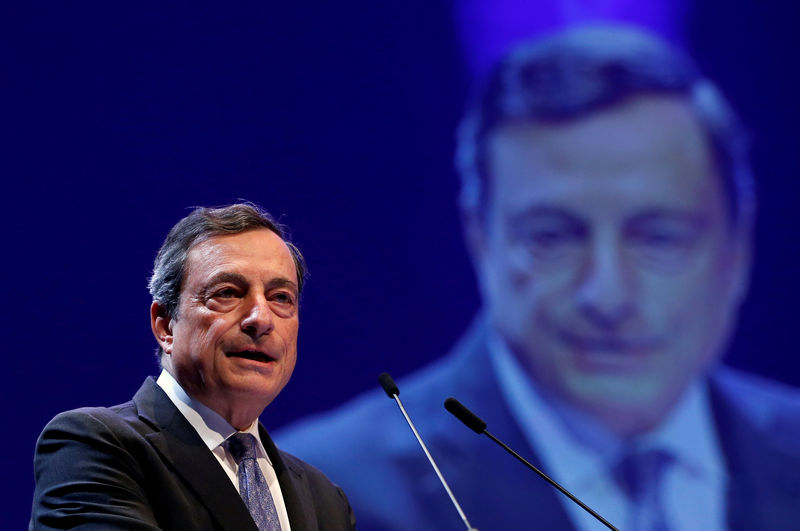FRANKFURT (Reuters) - Ditching the euro would not benefit any country in the currency bloc, and governments mostly have themselves to blame for their economic problems, European Central Bank President Mario Draghi said on Thursday.
Euroscepticism has gained ground in the region as its political landscape has become more populist, and the currency union arguably faces its toughest test as the 5-Star Movement campaigns to pull Italy out of the euro and presidential candidate Marine Le Pen proposes the same for France.
Encouraged in part by Britain's decision to quit the European Union, opponents of the euro argue that a flexible exchange rate would let them restore competitiveness, letting them escape a seemingly endless cycle of austerity and a relatively strong currency.
The single currency has been driven up by robust growth in economic powerhouse Germany, which has benefited disproportionately.
But in some of his strongest comments yet pointing the finger at politicians for waning confidence in the currency bloc, Draghi said the root cause of Europe's economic problems was political.
"Countries that have implemented reforms do not depend on a flexible exchange rate to achieve sustainable growth," he told said at a celebration in Ljubljana marking Slovenia's 10th year in the euro.
"If a country has low productivity growth because of deep-rooted structural problems, the exchange rate cannot be the answer."
He identified a slowdown in structural reforms, the watering-down of the EU's Growth and Stability Pact, the fragility of financial integration, and underlying divergence between countries.
"We need to be very clear that it was not the euro as a currency that was to blame for this," Draghi said. "National authorities knew what they had to do."
"The currency could not protect them from their own policy decisions," he added.

Draghi said that the severity of the euro crisis and fears about immigration, globalisation, and social change were impeding integration - which was the key to openness, wealth and political security.